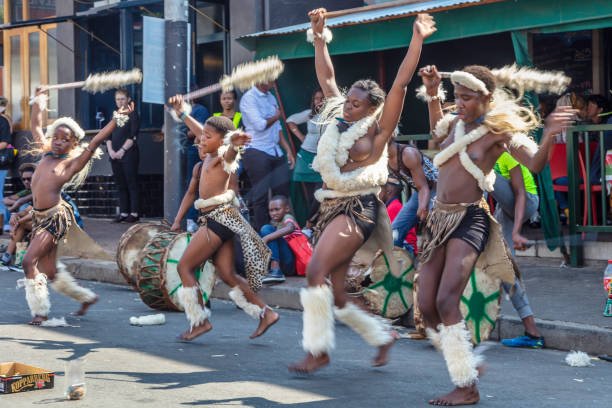South Africa, known as the “Rainbow Nation,” is a melting pot of diverse cultures, languages, and traditions. Heritage Day, celebrated on the 24th of September each year, is a significant national holiday that honors the rich cultural heritage of the country. It is an opportunity for South Africans to come together, showcase their customs, and learn about one another’s unique backgrounds. This article focuses into the various ways South Africa chooses to celebrate Heritage Day, including wearing cultural attire, sharing historical narratives, dancing, performing, and partaking in cultural rituals. We will also provide real-life examples of these celebrations.
How has South Africa Chosen to Celebrate their Heritage Day
The various ways South Africa chooses to celebrate Heritage Day, including wearing cultural attire, sharing historical narratives, dancing, performing, and partaking in cultural rituals:
Wearing Cultural Attire
Donning traditional attire is one of the most visible and iconic ways South Africans celebrate Heritage Day. From the vibrant Ndebele beadwork and the elegant Xhosa umbhaco to the Zulu warrior regalia and the colorful Venda prints, South Africans take pride in showcasing their cultural heritage through clothing. By wearing their traditional outfits, they not only express their identity but also pay tribute to their ancestors and history.
Real-life example: In 2020, Miss Universe Zozibini Tunzi, a South African, proudly showcased her Xhosa heritage by wearing an exquisite traditional gown during the national costume competition. Her choice of attire highlighted the importance of cultural representation on a global stage.
Sharing Cultural History
On Heritage Day, South Africans engage in storytelling and share their unique cultural narratives. Schools, museums, and cultural centers host exhibitions, workshops, and lectures to educate people about the different histories and traditions present in South Africa. This sharing of history fosters understanding, respect, and appreciation for the various cultures that make up the country.
Real-life example: The Iziko Museums of South Africa organize annual events during Heritage Week, where visitors can learn about South Africa’s rich history through interactive displays, guided tours, and curated exhibitions.
Dancing and Performing
Traditional dances and music play a significant role in South African culture. On Heritage Day, people come together to celebrate through dance and performance, showcasing their unique customs and artistic expressions. Dance groups, choirs, and musicians often perform in community events and festivals, inviting the audience to join in the festivities.
Real-life example: In 2019, the Gauteng Social Cohesion Carnival brought together thousands of people in Johannesburg, where they celebrated their cultural heritage through music, dance, and colorful parades.
Performing Cultural Rituals
Heritage Day is also an opportunity for South Africans to participate in various cultural rituals, connecting them to their roots and ancestors. These rituals can include traditional ceremonies, rites of passage, and the preparation of customary foods.
Real-life example: In the Eastern Cape, the annual Cala Traditional Food Festival takes place during Heritage Month. Here, the local community comes together to share, prepare, and enjoy traditional dishes from various cultural backgrounds, such as umngqusho (a Xhosa dish made from samp and beans) and amadumbe (a Zulu root vegetable dish).
South Africa’s Heritage Day is a powerful celebration of the country’s diverse cultures and rich history. By wearing traditional attire, sharing cultural narratives, dancing, performing, and participating in cultural rituals, South Africans embrace their unique heritage while fostering unity and understanding among the various communities that make up the Rainbow Nation. The examples provided in this article demonstrate the myriad ways South Africans come together to honor their past, celebrate their present, and look forward to a future of continued cultural diversity and harmony.





